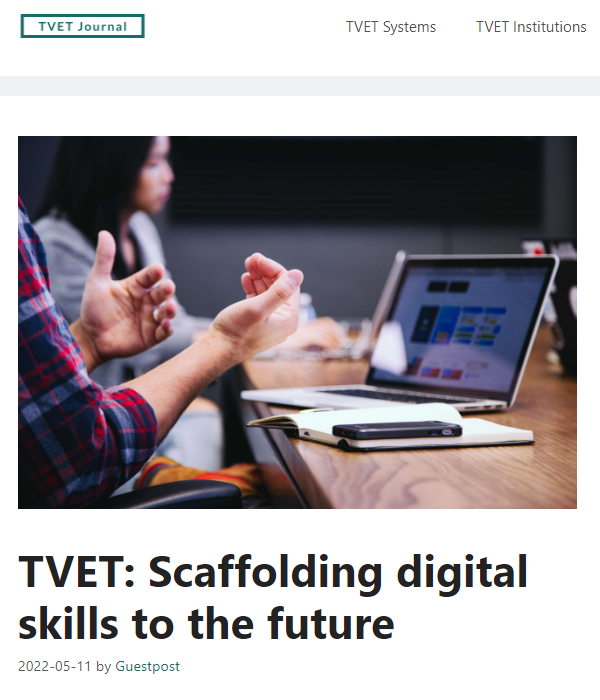
The UNESCO-UNEVOC International Centre: Who We Are | What We Do | Working With Us | Get in Touch
The UNEVOC Network: Learn About the Network | UNEVOC Network Directory
For Members: UNEVOC Centre Dashboard
Thematic Areas: Inclusion and Youth | Digital Transformation | Private Sector Engagement | SDGs and Greening TVET
Our Key Programmes & Projects: BILT: Bridging Innovation and Learning in TVET | Building TVET resilience | TVET Leadership Programme | WYSD: World Youth Skills Day
Past Activities: COVID-19 response | i-hubs project | TVET Global Forums | Virtual Conferences | YEM Knowledge Portal
Our Services & Resources: Publications | TVET Forum | TVET Country Profiles | TVETipedia Glossary | Innovative and Promising Practices | Toolkits for TVET Providers | Entrepreneurial Learning Guide
Events: Major TVET Events | UNEVOC Network News

| Author/s: | Glenda Crosling, Graeme Atherton, Angela Lee Siew Hoong, Supervised by: Sarah Elson-Rogers |
| Publisher/s: | TVET Journal |
| Published: | 2022 |
While the key role of digital competence is well-acknowledged in meeting the needs of Industry 4.0 and the new demands of the digital economy and society, COVID-19 has exposed, with urgency and intensity, the importance of building digital competence to sustain societal operations. Education is no exception. In technical and vocational education and training (TVET), teachers’ and students’ digital skills have been fundamental to educational continuation. With online education remaining integral to educational offerings post-COVID-19, the issue of digital skills continues to be highlighted as well as the need for it to be integrated in curricula. But given the wide spectrum of TVET’s educational programmes, digital competence is correspondingly broad; challenging questions remain about the proficiency levels necessary for effective TVET education and learning outcomes.
In this scenario, multiple resources by way of digital frameworks are available online to help TVET teachers and consequently their students address the digital needs which underpin successful educational experiences. These can also guide digital skills development. A project commissioned by UNESCO-UNEVOC to the Centre for Higher Education Research at Sunway University in Malaysia, in developing a repository for information and debate on digital skills and competency for TVET, has identified relevant frameworks, some of which are featured in this article. The key features of these frameworks as relevant to TVET educators are discussed.